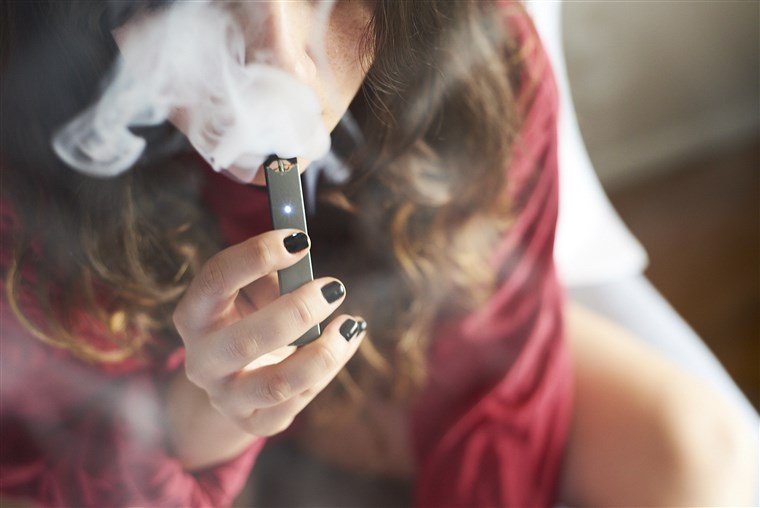Juul told a 9th grade class their products were "totally safe," according to teens' testimony
During a House Committee on Oversight and Reform hearing on Wednesday, two teens spoke about their experience with Juul, the company that produces flavored e-cigarettes. The committee is investigating Juul’s role in the youth vaping epidemic, and the teens who testified said that Juul did advertise directly to teens — right in their own school.
Caleb Mintz, now 17, said he and his friend, Phillip Fuhrman, who also testified, were in the 9th grade when Juul came to their school to give students a presentation. Mintz said his school holds a mental health and addiction seminar three times a year, during which the teachers leave the room so the students have a safe space to talk.
During this particular seminar, the students were alone in a classroom with a Juul representative. Mintz testified that the representative said, repeatedly, Juul is “totally safe.”
Juul Informational Page
This is an information page about Juul and is related to potential lawsuits against Juul related to alleged underaged marketing and advertising and injuries. Juul is an American electronic cigarette company which spun off from Pax Labs in 2017. It makes the Juul e-cigarette, which packages nicotine salts from leaf tobacco into one-time use cartridges.
The Juul became the most popular e-cigarette in the United States at the end of 2017 and has a market share of 72% as of September 2018. Its widespread use by youth has triggered concern from the public health community and multiple investigations by the U.S. Food and Drug Administration. Given the high nicotine concentrations in Juul, the nicotine-related health consequences of its use by young people could be more severe than those from their use of other e-cigarette products.
Altria Group (formerly Philip Morris Companies), acquired a 35% stake in Juul Labs for $12.8 billion on December 20, 2018. Altria is the parent company of Marlboro, who holds more combustible cigarette market share than the next 7 brands combined. According to a Wall Street Journal report, Altria’s investment in Juul was pushed by the fact that many smokers were switching to the electronic variant and Altria’s own e-cigarette product, MarkTen, was not selling well.
Juul target audience – Juul alleges that it is not targeting children and teens and that it supports efforts to limit tobacco products to people under age 21.
UULpods are available in four different flavors: Virginia Tobacco, Classic Tobacco, Menthol, and Mint.
On JUUL.com, JUULpods cost $15.99 for a 4-pack. Local excise tax and/or shipping costs may differ depending on your region. Each 5% JUULpod contains approximately 0.7mL with 5% nicotine by weight (approx. 40 mg per pod based upon 59 mg/mL) at the time of manufacture. Each 3% JUULpod is designed to contain approximately 0.7mL with 3% nicotine by weight (approx. 23 mg per pod based upon 35 mg/mL) at time of manufacture.


